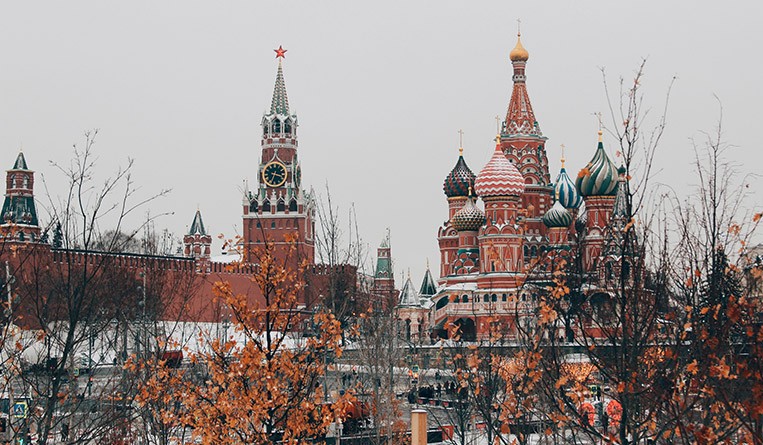Stages of trademark registration in Rospatent and their features
01 January 2024

Stages of trademark registration in Rospatent and their features
In accordance with Paragraph 1 of Article 1492 of the Civil Code of the Russian Federation, an application for state registration of a trademark is submitted to the federal executive authority for intellectual property (hereinafter referred to as Rospatent) by a legal entity or a citizen. After the application is submitted, the examination begins.
Next, we will consider in detail the process of registering a trademark in Rospatent, which can be conditionally divided into several stages: preparatory, initial, main and final.
Preparatory
At this stage, the applicant needs to prepare the materials necessary for filing an application: information about the applicant, the declared designation and its description, determine the type of trademark, form a list of goods and services, which should be grouped according to the classes of the International Classification of Goods and Services (ICGS).
Elementary
At the initial stage, in order to start the process of registering a trademark, it is necessary to file an application for a trademark. The application is submitted to Rospatent, and there are currently several ways to file it.
So, filing an application is possible in electronic form(through the specialized service AWP Registrar or through the EPGU (single portal of public services) – it should be noted that filing an application in electronic form allows you to reduce the amount of state duty by 30 percent. The application is automatically processed in the AWP registrar, and the application is instantly assigned a registration number and the date of filing the application is set.
The applicant can also file an application in paper form directly to Rospatent, by mail or by fax.
Basic
After filing an application with Rospatent, as noted above, it is assigned a registration number and a filing date.
It should be noted that the filing date of the application is set in accordance with Paragraph 8 of Article 1492 of the Civil Code of the Russian Federation on the date of receipt of an application containing an application for state registration of a designation as a trademark indicating the applicant, his place of residence or location; the claimed designation, the list of goods for which the state registration of a trademark is requested and which are grouped according to the classes of the Nice Classification, and if the indicated documents are not submitted simultaneously, by the date of receipt of the last of the documents. Thus, the preparatory stage should be carried out with particular care so that the application for state registration of a designation as a trademark is executed correctly and meets the requirements, and the filing date of the application is set on the day of its submission to Rospatent.
Further on the application, the payment of the fee is checked and a formal examination is carried out. The fee for filing an application is paid under Clauses 2.1 and 2.4 of the Appendix to the Regulations on Fees – the amount of the fee directly depends on the number of classes of the Nice Classification in respect of which the application is filed. The fee can be paid both immediately, before the application is assigned a number, or after the application is submitted and the registration number is assigned to it.
Further, if as a result of the check it is established that the fee has been paid in the amount and in the manner established by the Regulations on Fees, a formal examination is carried out on the application.
At the stage of formal examination of the application, the presence of the documents provided for in Paragraphs 1, 2 of the Rules is checked, and compliance with the requirements imposed on them by law. A formal examination of a trademark application is carried out within a month from the date of its filing with Rospatent.
Based on the results of the formal examination, the application is accepted for consideration or a decision is made to refuse to accept it for consideration. Thus, based on the results of a formal examination, the applicant may be sent:
1) The decision to accept the application for consideration and submit the application for examination of the designation declared as a trademark. Simultaneously with notification of a positive result of the formal examination of the application, the applicant is informed of the date of filing the application, established in accordance with Paragraph 8 of Article 1492 of the Civil Code.
2) A decision to refuse to accept the application for consideration, indicating the grounds for refusal;
3) A decision to recognize the application as withdrawn, indicating the grounds for recognizing the application as withdrawn (if the applicant does not submit additional materials referred to by the examination in the request for formal examination);
4) A decision to satisfy the application for recognizing the application as withdrawn (if the applicant, for some reason, decided to withdraw the application and sent a request to withdraw the application).
So, if the formal examination is successfully completed, the trademark application proceeds to the next stage, examination of the application on the merits (examination of the claimed designation).
An intermediate stage between formal and substantive examination is the stage at which the declared list of goods and services is checked for compliance with Paragraph 3 of Article 1492 of the Civil Code. If the list complies with the requirements of this paragraph, i.e. it is correctly grouped according to the classes of the Nice Classification, the applicant is sent correspondence on the compliance of the list with the Nice Classification.
During the substantive examination, the compliance of the declared designation with the requirements of the legislation of the Russian Federation (Article 1483 of the Civil Code of the Russian Federation) is checked.
Further, 2 scenarios are possible:
- If, during the substantive examination, the expert establishes that the designation applied for registration does not comply with the requirements of the legislation of the Russian Federation, the applicant is sent a notification of the results of checking the compliance of the declared designation with the requirements of the legislation of the Russian Federation, which indicates the reasons (grounds for refusal to register) for which the declared designation cannot be registered as a trademark.
It should be noted that the applicant has the right to send his arguments regarding the motives given in the notification to this notification. The deadline for sending a response to a notification is strictly regulated - six months from the date of sending the notification. Within this period, the applicant may submit his arguments (response to the notification), which will then be considered by the examination. If, based on the results of consideration of the response to the notification, the examination considers the applicant's arguments convincing, a decision on the registration of the trademark is made on the application. The decision on registration can be made both for the entire declared list, and for a part of the goods (if the examination considers that the grounds for refusing registration can be removed only for specific positions of the declared list of goods and services of the Nice Classification).
- If, during the substantive examination, the expert does not find any grounds for refusing registration, the applicant is sent a decision on the registration of the trademark, which indicates that the declared designation complies with the requirements of the legislation of the Russian Federation for the purposes of registration of the trademark.
In practice, the period of examination on the merits is approximately 8-10 months.
Additionally, it should be noted that if the examination completely denies registration of the trademark in the notification, and the applicant does not respond to the notification or responds, but the examination recognizes his arguments as unconvincing, a decision is made on the application to refuse state registration of the trademark in relation to the entire list of goods. The refusal decision shall indicate the reasons why such a decision was made.
Final
The final stage of trademark registration is its direct registration in the state register of trademarks and service marks and the issuance of a certificate. In order to register a trademark and obtain a certificate, it is necessary to pay a fee, the amount of which is established by Clause 2.11 of the Appendix to the Regulations on Fees . The deadline for paying the fee is strictly regulated - it is two months from the date of sending the decision on the registration of a trademark. If the fee is not paid within the specified period, a penalty period will occur, six months from the date of expiration of the above two-month period.
Currently, the certificate is issued in the form of an electronic document. An individual link is indicated in the registration decision, which is activated after payment of the fee and registration of the trademark in the state register. Also, if necessary, it is also possible to additionally obtain a paper certificate; in this case, it is necessary to pay an additional fee under Clause 2.14 of the Appendix to the Regulations on Fees and file a corresponding application (it is important to note that it must be filed before the state registration of a trademark).
Thus, after paying the fee for registering a trademark and obtaining a certificate, Rospatent assigns a number to the trademark within a month, sets the date of registration and produces a certificate. A trademark certificate certifies the priority of the trademark and the exclusive right to the trademark in respect of the goods specified in the certificate.
The trademark is valid for 10 years, it can be renewed an unlimited number of times (each time for 10 years).








